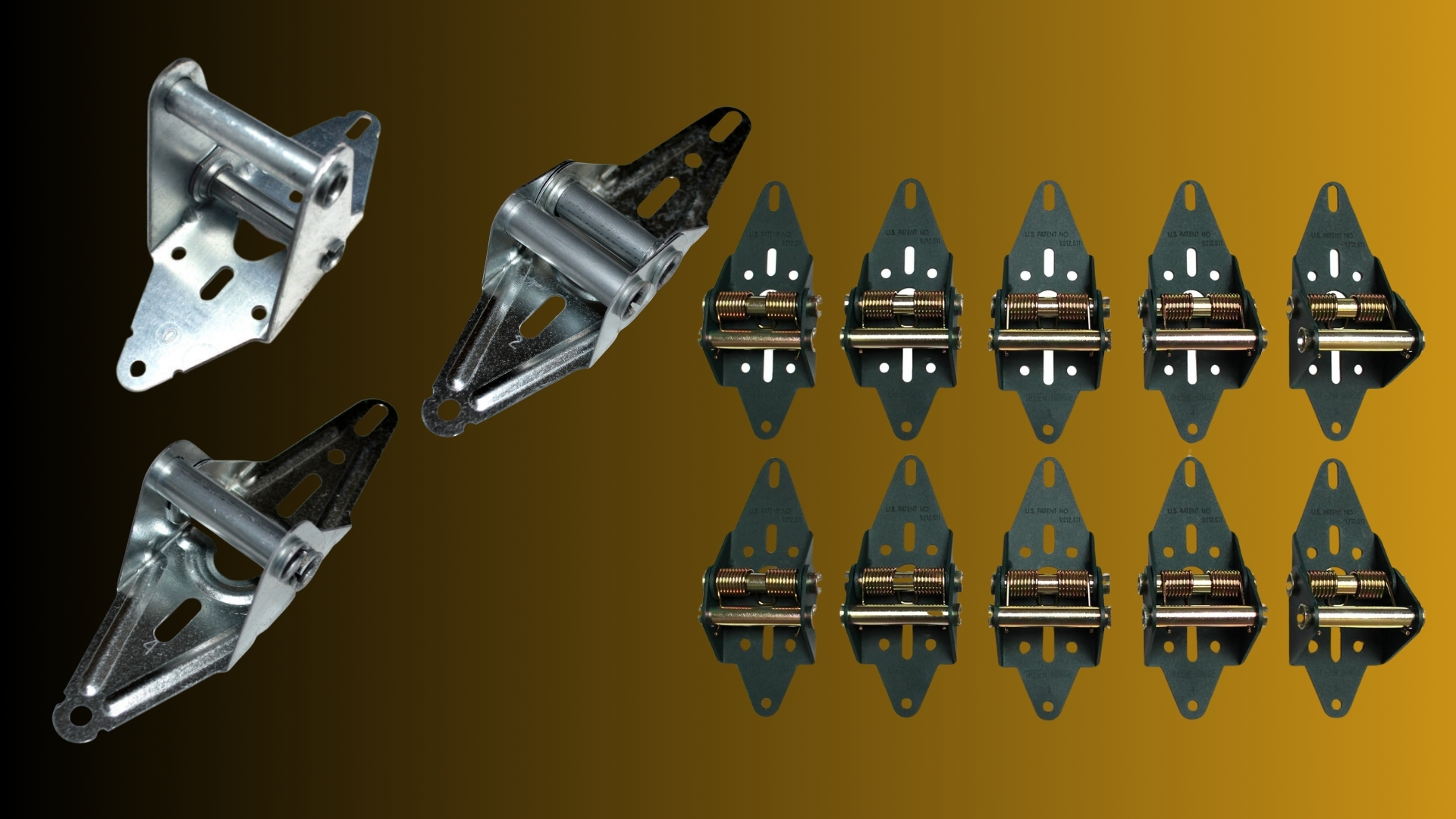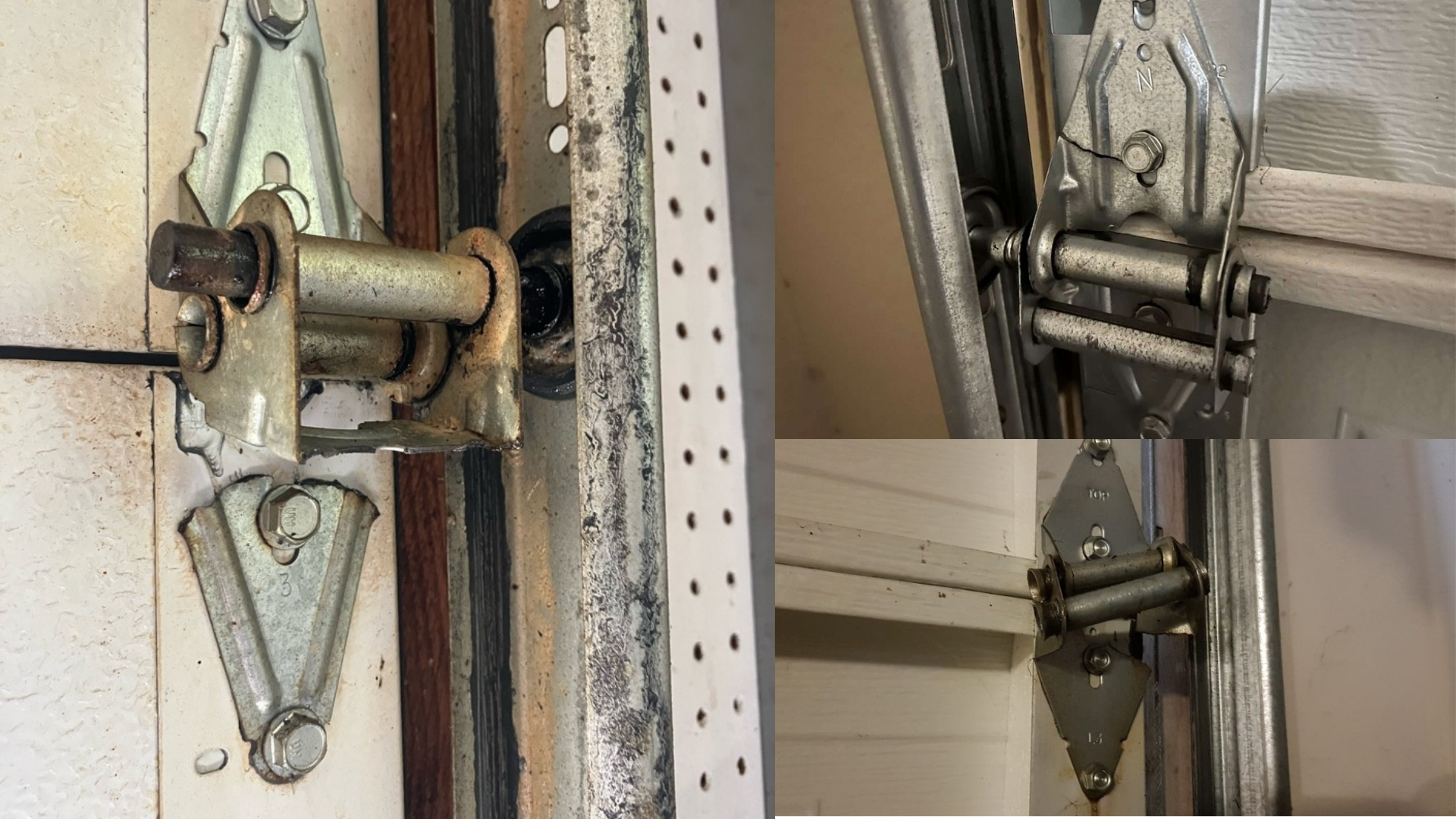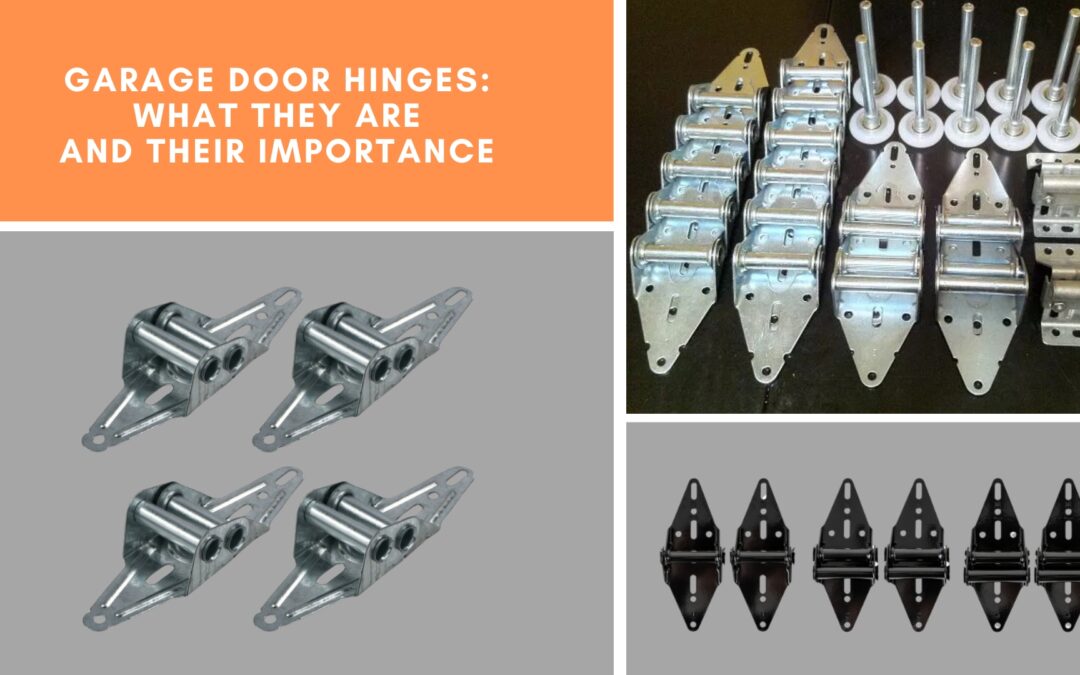When you look at your garage door, you might notice its size, style, or color. But there is one small part you might not think about much: the garage door hinges. Yet, these small parts are key to keeping your garage door working safely and smoothly. In this guide, we will explore what garage door hinges are, look at the different types, and explain why they are so important. Read on to discover why these garage door parts are vital to your garage door’s performance and durability.
What Are Garage Door Hinges?
Garage door hinges are the moving parts that hold the garage door panels together and let the door move as it opens and closes. They are crucial in keeping the door from getting stuck when it rolls up or swings open. These hinges, often made from galvanized steel, are sturdy enough to support the door’s weight and daily use and abuse. Stainless steel is a great option, especially good for avoiding rust and corrosion. It is particularly handy in areas with less-than-ideal weather.
Different Garage Door Hinges and Their Features
Here are the various types of garage door hinges, explaining what each type does and why it matters:
Standard Garage Hinges
These are the most commonly used hinges on sectional garage doors. They connect the panels and allow them to bend as the door follows the track upwards or downwards. Standard garage door hinges often have numbers labeled as #1 to #5. The number helps you figure out where you should place each hinge on the door. The higher the number, the wider the hinge.

Garage Door Roller Hinge
Roller garage door hinges, also known as carrier hinges, combine a hinge and a roller in one unit. You will find them at the ends of the panels, helping the door roll along the track effortlessly. They are important on the top panel, which bends the most as the door opens.
Specialty Hinges
These hinges are for unique or custom garage door use, catering to special needs. For example, wide-throw hinges allow a door to open wider than usual, which is useful in garages with extra wall space. When choosing these hinges, consider the specific setup of the garage door.
Common Signs of Wear and Damage
Garage door hinges often last, but like others, they wear out over time due to regular use and exposure to the elements. If you know how to spot wear and tear, you can fix problems before they get worse. Here are common signs of wear and damage to the hinges:
- Noise: Increased noise during operation is a clear sign of failing garage door hinges. If your hear creaking or grinding sounds, it could mean the hinges are wearing out.
- Visible Wear: Check the hinges for any visible signs of wear, such as rust, bending, or cracks. These physical changes can compromise the garage door alignment and smooth operation.
- Stiffness in Operation: If the door does not open or close smoothly or if it feels heavier than usual, the hinges may be at fault.
- Misalignment: Over time, worn hinges can cause the door sections to become misaligned, which can strain other parts of the door system.
It is good practice to inspect your hinges at least twice a year. When garage door hardware is loose, it can lead to premature wear and further damage. Look for any of the above signs and also check if the screws are tight and not stripped. Also, make it a habit to clean and lubricate your garage door hinges as needed, just like any garage door part.
When to Consider a Replacement
If you notice any of the signs mentioned, it is likely time for a garage door hinge replacement. However, if you are unsure about the condition of your garage door hinges, consider getting a professional inspection. Delaying this can lead to more damage to the garage door or even pose safety risks. Also, consider the age of the garage door hinges. If they are several years old and showing signs of deterioration, replacement might be the best option to ensure optimal performance.

Choosing the Right Garage Door Hinge
It is important to pick the right one for your garage door so that it works with ease and lasts a long time. Here are some of the factors to consider when choosing one:
- Weight of the Door: The hinge you choose must be strong enough to support the weight of your garage door. Lighter doors require less robust hinges. Meanwhile, heavier doors, like those made of solid wood or commercial-grade materials, need thicker and sturdier hinges.
- Material Compatibility: The material of your garage door determines the type of hinges you should use. For instance, hinges that work well with metal might not be the best choice for wooden doors. Some garage door materials require more heavy-duty.
- Security Features: If your garage faces a street or accessible area, consider hinges with added security features to prevent tampering.
When you choose high-quality hinges, you will not have to repair them as often. They are durable and can handle heavy daily use and bad weather. Although they may cost you initially, these hinges will make it easier for your door to open and close without squeaking. Also, look for certifications or excellent reviews from other customers. Certifications from recognized industry standards are a good sign of quality. You can also ask a professional installer for advice on which brands and types are the best.
Garage Door Service Near Me
Are you in Des Moines, IA, and need help with your garage door? At Titan Garage Doors Des Moines, we are here to assist you with any garage door service you might need, whether it is garage door repairs, maintenance, or a new garage door installation. Do not let a faulty garage door hinge or a stuck door disrupt your day. Trust our experienced team to provide fast, reliable service that ensures your garage door works perfectly all year round. Contact us today to schedule your service appointment or to get a free quote.


Recent Comments